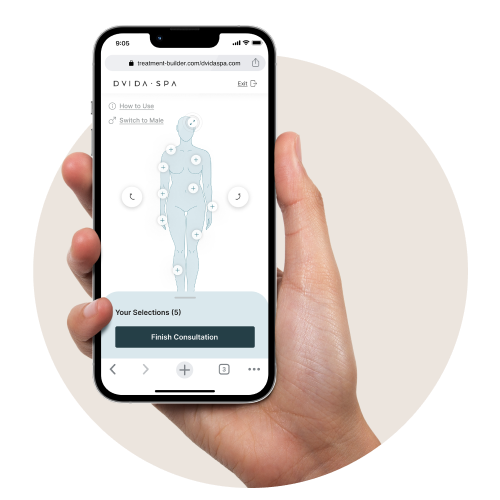
Hormone replacement therapy (HRT) is a good way to alleviate some of the symptoms of menopause, like hot flashes, night sweats, mood swings, and vaginal dryness. While great relief is experienced for most users with hormone replacement therapies like HRT, some users experience mild to moderate side effects; even subtle ones might occur from time to time.
Hormone replacement therapy side effects studies will enable you to make a well-informed decision and treat symptoms early if they begin to appear, thus maximizing therapy while minimizing side effects as they occur.
Healthcare providers advise giving yourself at least three months before altering or cancelling plans or discontinuing altogether.
One of the greatest difficulties associated with HRT therapy lies in distinguishing its side effects from menopausal symptoms and creating confusion; HRT may even simulate menopause symptoms after starting treatment; mood swings, fatigue, or irregular bleeding patterns might not necessarily be caused by HRT itself but can easily create additional uncertainty for users.
In a Hurry? Dial 984-253-3377 now!
Oestrogen Side Effects | Hormone Replacement Therapy (HRT)
Estrogen is one of the primary hormones utilized for hormone replacement therapy (HRT), and its side effects tend to appear within weeks after beginning HRT treatment. Common adverse reactions related to estrogen use could include:
- Headaches often present themselves as breast tenderness or pain (BTO/P) as well as sudden vaginal bleeding/spotting as symptoms, making this form of illness all the more prevalent.
- Depression may manifest itself with symptoms including nausea, low mood or mood swings, leg cramps, mild skin rashes or itches that spread, diarrhea, and dizziness – these could all be telltale indicators that something may be amiss in one’s health.
- Hair Thinning or Hair Loss. Most adverse reactions to medications tend to be mild and typically subside after several weeks; however, strategies do exist for managing them effectively, such as increasing the dosage or taking it with food to decrease nausea.
Side Effects and Strategies to Address Vaginal Oestrogen Administration (VO)
Progestogen Side Effects
Women seeking extra protection against endometrial cancer could use progestogens as part of hormone replacement therapy to lower risks or altogether avoid cancer; however, they should consider potential adverse side effects associated with progestogen usage, such as:
- Spotting or irregular menstruation could signal major disruption and could result in cessation altogether.
- Signs that cancerous cells have formed include headaches or tender breast tissue, nausea, diarrhea, fatigue or dizziness, and mood changes such as depression.

In a Hurry? Dial 984-253-3377 now!
Are You Allergic to Progesterone Supplements, Utrogestan?
May offer additional relief if progesterone supplements continue causing skin rashes and itching; your GP may recommend switching forms, like Utrogestan, which contains micronized progesterone, which might provide added advantages.
Gain knowledge in combating side effects associated with micronized progesterone (Utrogestan).
Hormone Replacement Therapy and Its Side Effects
Hormone replacement therapy involving estrogen and progestogen can have side effects; people can opt for sequential combination HRT with doses taken regularly of either hormone, while continuous combination HRT involves administering both daily. As previously discussed, hormone replacement therapy side effects may include symptoms similar to those noted above. Combination HRT has been associated with headaches, mood shifts, breast tenderness, nausea, and irregular bleeding—yet dosage or duration adjustments could potentially decrease these side effects more efficiently over time.
Continuous Hormone Replacement Therapy Combinations May Harm Reproductive Organs
Here are possible complications. Tibolone is unsafe with unintended effects. Doctors often prescribe tibolone for hormone replacement therapy (HRT), but it carries its own set of risks you should carefully consider before taking it. Although most people don’t report muscle soreness or headaches from its use, tibolone can still cause unexpected adverse reactions, so weigh these factors before making your final decision.
Breast tenderness, abdominal or pelvic pain, unusual hair growth, and vaginal drainage or itchiness that may resemble. Watch for signs of thrush and take note as soon as it appears. If your vaginal bleeding symptoms worsen or persist, visit your GP, who may recommend additional therapies or solutions.
Vaginal Bleeding After Beginning HRT
It is common for HRT users (particularly continuous combination therapy users ) to experience irregular or spotty bleeding early in treatment; usually, this subsides within six months or sooner. If heavy or persistent bleeding occurs, contact your GP immediately. They can evaluate the cause and recommend appropriate investigations to identify the source and find a possible solution.
Once progestogen therapy and withdrawal have been abruptly stopped, withdrawal bleeding may result when reaching peak dosage levels per cycle.
HRT should not lead to significant weight gain during midlife; most weight gain occurs as part of natural aging processes and hormonal shifts instead. Although some may worry about HRT side effects such as weight gain, most studies show it doesn’t. A healthy lifestyle, including regular physical exercise and healthy food consumption, might prove more successful at helping manage weight than HRT alone.
HRT Risks When Taken for Extended or Higher Doses
HRT typically causes only mild adverse side effects; however, prolonged use or higher dosage levels could expose users to greater dangers that include
- Increased blood clotting risk, including deep vein thrombosis (DVT).
- Long-term hormone replacement therapy use increases breast cancer risks significantly and could present additional threats.
- Discuss any family histories related to this condition with your healthcare provider to assess its risks versus benefits.

Summing Up!
Hormone replacement therapy can be an invaluable aid for managing menopausal symptoms; however, its users must recognize any hormone replacement therapy side effects and respond appropriately. Comfort caused by HRT should fade within its expected lifespan, and dosage adjustments can quickly alleviate it; discomfort that persists should be discussed with your GP at Dvida Med Spa, who may offer alternative strategies or techniques that improve quality of life during and beyond menopause transition.
If it continues beyond that point, discuss it directly. Consider new approaches that enhance life during or after the menopausal transition, techniques that improve quality of life, or strategies that further support well-being.
Do you feel the hormone replacement therapy side effects today? Call us now!
Our highly skilled staff at Dvida Medical Spa in Raleigh and Wake Forest, NC. offers the solution to regaining your strength and authority regardless of age.

